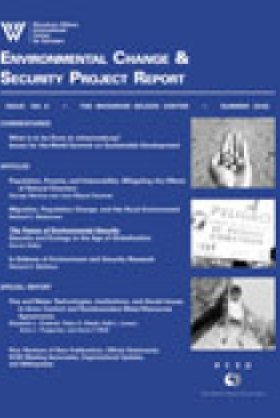Security and Ecology in the Age of Globalization


The environment has emerged as a major theme in the post-Cold-war discussion of human security. There has been a considerable amount of detailed empirical work on the relationship between environmental change and likely conflicts. This article argues that, while the interconnections between the environment and conflict are many and complex, the likelihood of large-scale warfare over renewable resources is small. Nonetheless, environmental difficulties do render many people insecure. A parallel conceptual discussion suggests that the empirical work of environmental security research needs to be placed in the larger context of global economic changes and large-scale urbanization of a growing humanity. This urban population increasingly draws resources from rural areas, disrupting indigenous populations. All these dynamics are also complicated by the rapidly increasing scale of human activities, which has induced a level of material- and energy-flow through the global economy that is a new and substantial ecological factor in the biosphere. Given the scale of these processes, societies should carefully consider these interconnections and reduce their total resource throughput to improve environmental security and develop sustainable modes of living for the future.
Author

Environmental Change and Security Program
The Environmental Change and Security Program (ECSP) explores the connections between environmental change, health, and population dynamics and their links to conflict, human insecurity, and foreign policy. Read more




